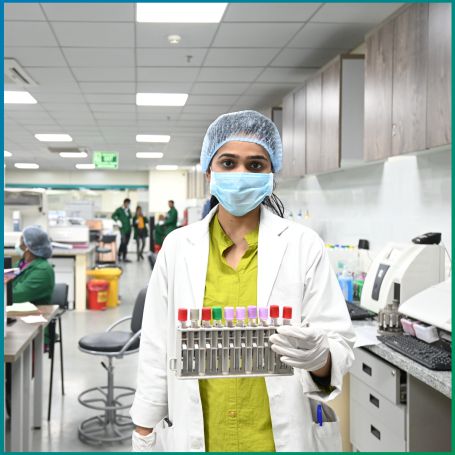
Fluid Crystal Study, often referred to as liquid crystal study or analysis, is a technique used to examine the unique properties of liquid crystals


These materials are widely used in modern technology, especially in liquid crystal displays (LCDs), but their applications extend far beyond consumer electronics. Liquid crystals are a state of matter that exists between the conventional liquid and solid states. In this intermediate phase, molecules exhibit some degree of order, as seen in solids, but they can also flow like liquids.
Types of Liquid Crystals
1] Thermotropic Liquid Crystals: These liquid crystals change phase depending on temperature. When the temperature rises or falls, their molecular structure rearranges, affecting their optical properties. They are commonly used in LCDs and thermochromic materials.
2] Lyotropic Liquid Crystals: These liquid crystals depend on the concentration of certain solvents, such as water. They are often found in biological systems and are used in pharmaceutical and cosmetics formulations.
Several techniques are used to study the properties and behaviors of liquid crystals. Some of the most commonly used methods include:
1. Polarized Light Microscopy (PLM) - Polarized Light Microscopy is one of the primary tools used to study the optical properties of liquid crystals. In this technique, polarized light is passed through the liquid crystal sample. Because liquid crystals have anisotropic optical properties, they interact differently with polarized light depending on the orientation of their molecules. This allows researchers to observe the texture and orientation of the molecules within the liquid crystal.
2. Differential Scanning Calorimetry (DSC) - DSC is a thermal analysis technique used to measure the phase transitions of liquid crystals. By heating or cooling the sample, the energy required to change its phase (e.g., from liquid to liquid crystal) can be measured. This is important for understanding the thermal properties of liquid crystals, such as their phase transition temperatures.
3. X-ray Diffraction (XRD) - X-ray diffraction is used to investigate the molecular arrangement of liquid crystals. By analyzing the pattern of X-rays scattered by the liquid crystal sample, researchers can determine the arrangement and spacing of the molecules within the material.
4. Nuclear Magnetic Resonance (NMR) Spectroscopy - NMR spectroscopy is used to study the molecular dynamics and alignment of liquid crystals. By observing how the nuclei of atoms in the liquid crystal interact with magnetic fields, researchers can gain insights into the behavior and orientation of the molecules in different phases.
5. Electro-optical Measurements - Liquid crystals exhibit unique optical properties when subjected to an electric field. By applying an electric field to a liquid crystal sample and measuring how it changes the optical properties (such as birefringence), researchers can learn more about the molecular alignment and the electrical responsiveness of the liquid crystal.
At Diagnopein, we offer comprehensive, accurate, and timely diagnostic services, including the Fluid Crystal Study Test pune. With our NABL-accredited labs, cutting-edge technology, and skilled technicians, you can be assured of reliable results every time. Get your results quickly, especially when time is crucial in detecting severe infections.
Competitive pricing without compromising on quality. Our team of experienced professionals ensures the test is conducted smoothly with minimal discomfort. We provide not just Fluid Crystal Study test results but insights into your health condition, helping you and your doctor make informed decisions about treatment. For more information call us at +91 9204 108108.
Future research in fluid crystal studies may focus on: New Liquid Crystal Materials: Developing more stable and responsive liquid crystals for technological applications. Nanotechnology: Combining liquid crystals with nanomaterials for novel uses in electronics, drug delivery, and sensors. Biotechnology: Exploring liquid crystals in biological systems to develop more advanced biosensors, drug delivery methods, and biomimetic materials.
In cosmetics, liquid crystals are used in formulations like creams and lotions to improve stability and texture. They form stable emulsions and give products a smoother, more consistent feel on the skin.
Fluid crystal studies are crucial for understanding how liquid crystals behave under different conditions. These studies provide insights that help in the development of advanced technologies like LCDs, sensors, drug delivery systems, and materials for various industrial and scientific applications.